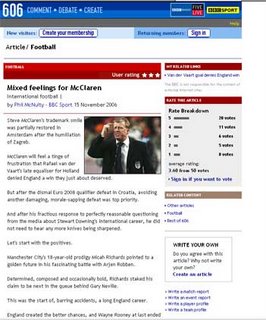Sarah's Several Skills
As I have indicated before I have a soft spot for local newspapers. I am also aware that they can be a very difficult place to work.
And so I was very impressed that not only did Sarah Radford, yesterday's visiting lecturer, produce a website for the not-exactly exciting area of Newbury, but she managed to get out daily video bulletins.
Having worked on local papers in a comparatively 'newsy' area of the world, the Medway Towns in Kent, I am amazed that the Newbury Weekly News had the resources or material to do what it did.
And yet this is probably where most local newspapers will be headed in the near future if they are to survive.
It's an exciting prospect, but at the same time it could be quite frightening. Sarah mentioned that time contraints often resulted in her producing products she wasn't happy with. And this is what COULD happen more and more often if 'multiskilling' is taken to mean having fewer and fewer journalists
And so I was very impressed that not only did Sarah Radford, yesterday's visiting lecturer, produce a website for the not-exactly exciting area of Newbury, but she managed to get out daily video bulletins.
Having worked on local papers in a comparatively 'newsy' area of the world, the Medway Towns in Kent, I am amazed that the Newbury Weekly News had the resources or material to do what it did.
And yet this is probably where most local newspapers will be headed in the near future if they are to survive.
It's an exciting prospect, but at the same time it could be quite frightening. Sarah mentioned that time contraints often resulted in her producing products she wasn't happy with. And this is what COULD happen more and more often if 'multiskilling' is taken to mean having fewer and fewer journalists



